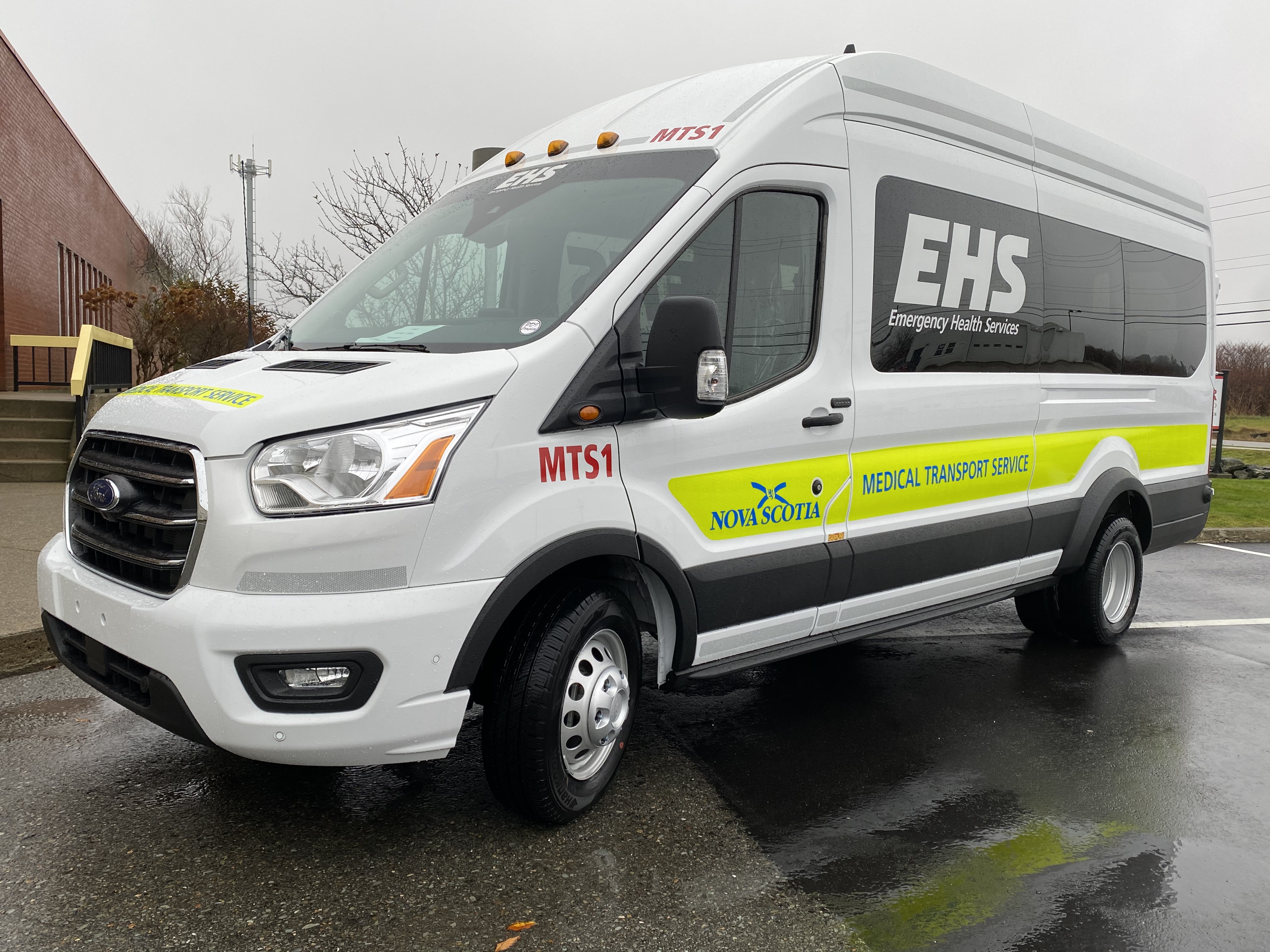Government is doing more to alleviate pressure on our emergency health system and our paramedics by freeing up front-line staff from non-emergency tasks.
The province has purchased vans for the Emergency Health Services (EHS) system to provide non-clinical transportation for Nova Scotians requiring transfer between health care facilities. The vehicles are part of a one-year pilot project called the Medical Transport Service.

“By using vans for clients who do not require medical care during a transfer, we are freeing up our ambulances and paramedics to focus on the important emergency care they provide,” said Health and Wellness Minister Leo Glavine. “New approaches like this will ensure Nova Scotians can get the care they need quickly and efficiently, while maximizing our EHS resources.”
Currently, EHS provides non-clinical, non-emergency transportation between hospitals and health-care facilities. This is done by EHS ambulances with two paramedics. As well, EHS provides some transportation from community residences to health-care facilities, when there is no viable alternate private or public transportation service.
Three vans are expected to be in service by February 2021 in Bridgewater, Kentville and Central Zone.
These vehicles will be able to transport several people at a time, including those requiring wheelchair services. They will be staffed with one EHS employee who will be the operator of the vehicle and in communication with the EHS Medical Communication Centre.
Quick Facts:
— there are 160 ambulances and approximately 1,200 paramedics in Nova Scotia
— EHS paramedics respond to approximately 175,000 calls every year for emergencies and patient transfers
— paramedics in Halifax participate in the Extended Care Paramedic Program which allows seniors to be treated in their home rather than at an emergency department
— a check-in program called VISIT allows paramedics in the Annapolis Valley to check in on some at-risk seniors identified by local doctors
— a Community-Based Paramedic Program in Cape Breton Regional Municipality offers support to patients after they are released from hospital
– funding for this initiative comes from the Canada-Nova Scotia Home and Community Care and Mental Health and Addictions Services Funding Agreement
Source: Release